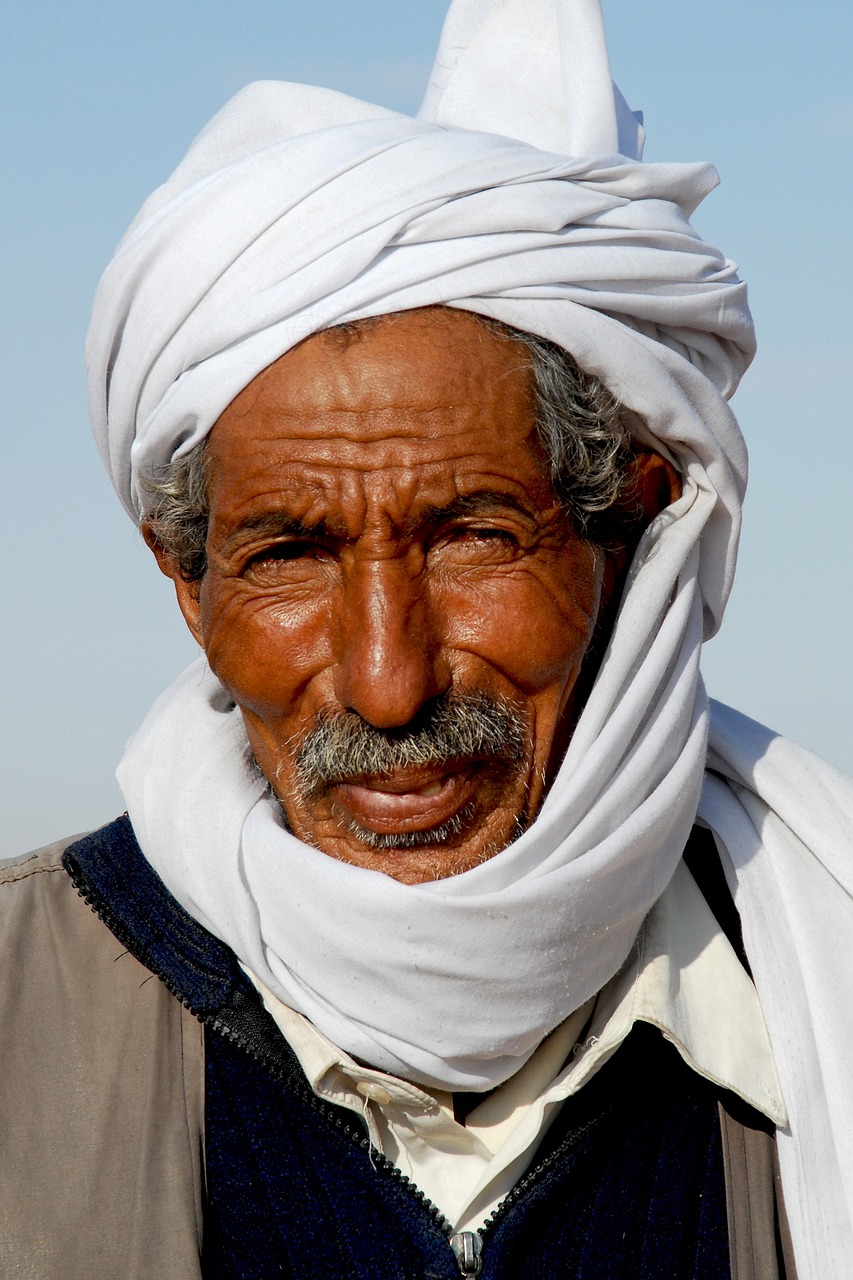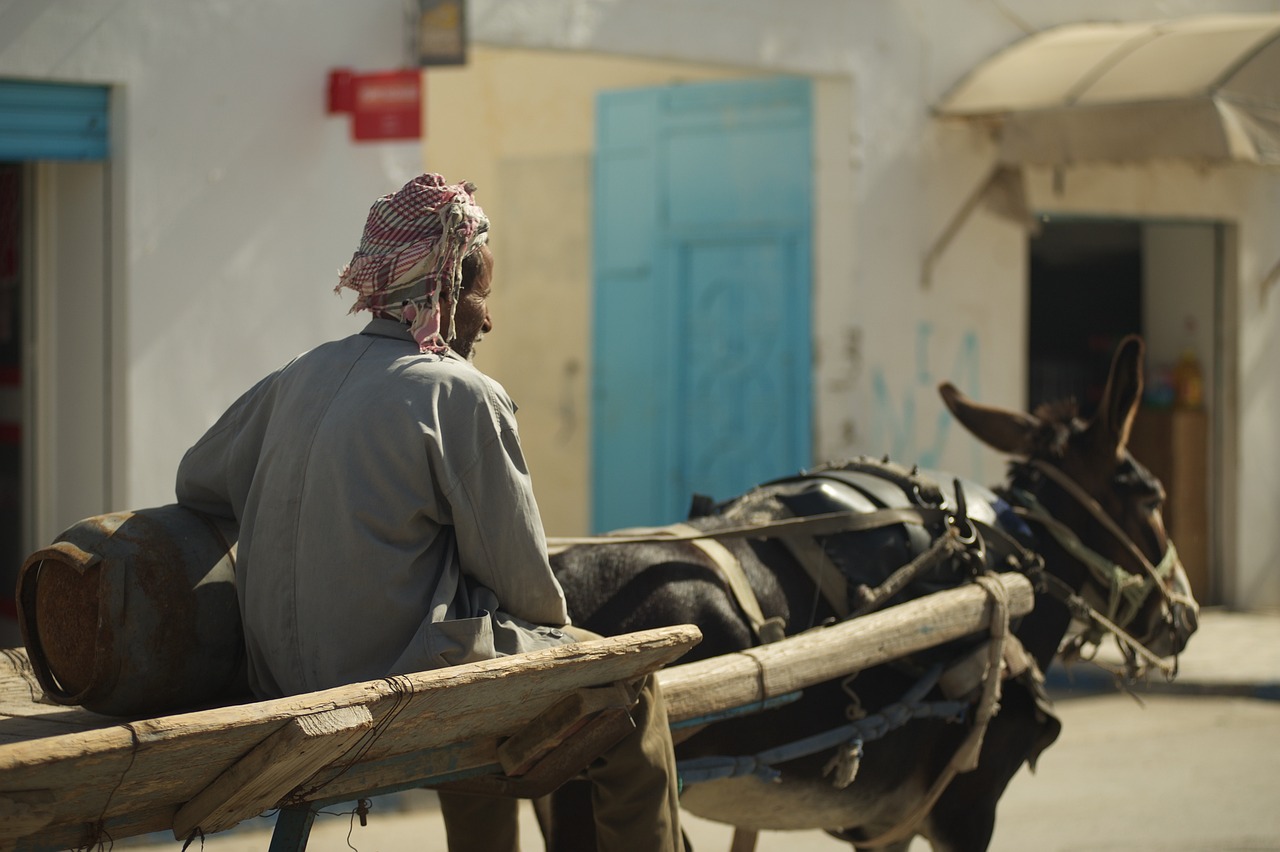Tunisia Video
Local Celebrations and Holidays: What to Expect in Tunisia
Tunisia, located in North Africa, is a country known for its rich culture and diverse traditions. Throughout the year, various local celebrations and holidays take place, offering visitors a unique opportunity to immerse themselves in Tunisian customs and festivities. From religious observances to cultural events, Tunisia’s calendar is filled with vibrant and exciting occasions. In this article, we will explore some of the most significant celebrations and holidays in Tunisia, providing insights into what you can expect when visiting this beautiful country.
The Tunisian New Year: Ras as-Sana
The Tunisian New Year, known as Ras as-Sana, is celebrated on January 1st, following the Gregorian calendar. While it is not an official public holiday, many Tunisians gather with their families and friends to welcome the New Year. The celebrations often involve festive meals, fireworks, and parties that last well into the night. Tunisians also exchange gifts and enjoy the vibrant atmosphere in major cities such as Tunis, Sousse, and Djerba.
- Family gatherings: Tunisians value spending time with their loved ones during the New Year celebrations. Family gatherings are a common tradition where relatives come together to share a special meal and exchange good wishes for the upcoming year.
- Festive meals: Traditional Tunisian dishes, such as couscous, brik, and tajine, are often prepared for the New Year’s feast. These meals showcase the country’s culinary heritage and are enjoyed by both locals and visitors.
- Fireworks and parties: Fireworks displays light up the night sky in major cities, creating a festive ambiance. Many Tunisians also attend parties and events organized by hotels, restaurants, and clubs to celebrate the arrival of the New Year.
Tunisian Independence Day: Eid El Horria
Eid El Horria, also known as Tunisian Independence Day, is celebrated on March 20th each year. This national holiday commemorates Tunisia’s independence from France, which was achieved in 1956. The day is marked by various events and activities that showcase the country’s rich history and patriotism.
- Official ceremonies: On Eid El Horria, official ceremonies are held across Tunisia. These ceremonies often take place in Tunis, the capital city, and involve speeches by political leaders, flag-raising ceremonies, and performances by Tunisian artists.
- Parades and processions: Colorful parades and processions fill the streets of Tunis and other major cities on Independence Day. Participants, including military personnel, students, and cultural groups, march through the city, showcasing their pride and patriotism.
- Cultural exhibitions: Museums and cultural centers organize exhibitions that highlight Tunisia’s history and achievements since gaining independence. These exhibitions offer visitors a chance to learn more about the country’s culture and heritage.
Tunisian National Day: Martyrs’ Day
Martyrs’ Day, also known as Tunisian National Day, is observed on April 9th every year. This public holiday honors the sacrifice of Tunisian nationalists who fought against French colonial rule. It is a solemn day of remembrance and reflection for Tunisians.
- Wreath-laying ceremonies: On Martyrs’ Day, Tunisians pay tribute to the fallen heroes by participating in wreath-laying ceremonies at monuments and memorials dedicated to the martyrs. These ceremonies are attended by government officials, military representatives, and the general public.
- Moments of silence: Throughout the day, moments of silence are observed to honor the memory of the martyrs. Tunisians pause and reflect on the sacrifices made by those who fought for Tunisia’s independence.
- Historical documentaries and films: Television channels and cultural institutions often broadcast documentaries and films that shed light on the struggle for independence and the lives of Tunisian nationalists. These programs serve as a reminder of the country’s history and the importance of freedom.
Tunisian Revolution Day: Revolution of Dignity
Tunisian Revolution Day, also known as the Revolution of Dignity, is celebrated on January 14th each year. This public holiday commemorates the 2011 Tunisian Revolution, which marked the beginning of the Arab Spring. It is a significant day in Tunisia’s recent history, symbolizing the fight for democracy and social justice.
- Public rallies and demonstrations: On Revolution Day, Tunisians take to the streets to commemorate the revolution and express their ongoing commitment to democratic values. Peaceful rallies and demonstrations are held, with participants waving flags and chanting slogans.
- Artistic performances: Cultural events, including music concerts, theatrical performances, and poetry readings, are organized to celebrate the spirit of the revolution. Artists and performers use their craft to convey messages of freedom, unity, and hope.
- Open discussions and debates: Universities, community centers, and public spaces host panel discussions and debates on topics related to democracy, human rights, and social progress. These forums encourage dialogue and reflection among Tunisians.
Tunisian Women’s Day: National Women’s Day
National Women’s Day, celebrated on August 13th, is dedicated to recognizing the achievements and contributions of Tunisian women. It is an important occasion to promote gender equality and empower women in all aspects of society.
- Women’s rights conferences and workshops: Various organizations and institutions hold conferences and workshops to address issues related to women’s rights, equality, and empowerment. These events aim to raise awareness and promote positive change.
- Art exhibitions and performances: Tunisian women artists showcase their talents through exhibitions, concerts, and theatrical performances. These artistic expressions highlight the diversity and creativity of Tunisian women in the arts.
- Awards and recognition: Outstanding Tunisian women who have made significant contributions to society are honored with awards and recognition ceremonies. Their achievements serve as inspiration for future generations.
Tunisian Cuisine Festival: Carthage Gourmet
Carthage Gourmet, also known as the Tunisian Cuisine Festival, is a celebration of Tunisia’s rich culinary heritage. This annual event showcases the country’s diverse flavors, traditional dishes, and culinary innovations.
- Gourmet food stalls: During the festival, food stalls are set up in designated areas, offering visitors a chance to sample a wide array of Tunisian dishes. From street food delicacies to gourmet creations, there is something to satisfy every palate.
- Cooking demonstrations and workshops: Renowned Tunisian chefs conduct cooking demonstrations and workshops, sharing their expertise and secrets of Tunisian cuisine. Visitors can learn traditional cooking techniques and try their hand at preparing authentic Tunisian dishes.
- Cultural performances: The festival is not just about food; it also includes cultural performances such as music, dance, and traditional storytelling. These performances add to the vibrant atmosphere and provide a deeper understanding of Tunisian culture.
Tunisian Music Festival: Carthage International Festival
The Carthage International Festival is a renowned music festival held annually in Tunis. It brings together local and international artists, showcasing a diverse range of musical genres and performances.
- Concerts by renowned artists: The festival features concerts by both Tunisian and international music stars. From traditional Tunisian music to contemporary pop, rock, and jazz, there is a wide variety of musical genres to enjoy.
- Theatrical performances: In addition to music, the festival also includes theatrical performances that combine music, dance, and storytelling. These performances offer a unique blend of artistic expression and cultural immersion.
- Street performances and exhibitions: Throughout the festival, the streets of Tunis come alive with street performers, art exhibitions, and cultural displays. Visitors can explore the city’s vibrant arts scene and engage with local artists.
Tunisian Sahara Festival: International Festival of the Sahara
The International Festival of the Sahara, also known as the Tunisian Sahara Festival, takes place in Douz, a city located on the edge of the Sahara Desert. This unique festival celebrates the cultural heritage of Tunisia’s desert regions.
- Traditional desert activities: Festival attendees can participate in traditional desert activities such as camel rides, sandboarding, and desert treks. These experiences allow visitors to immerse themselves in the stunning landscapes of the Sahara Desert.
- Traditional music and dance: The festival showcases traditional music and dance performances from the desert regions of Tunisia. Attendees can enjoy mesmerizing performances by local musicians and dancers, accompanied by traditional instruments.
- Crafts and artisanal products: Local artisans display and sell their handmade crafts and products, including traditional clothing, jewelry, pottery, and woven rugs. This is a great opportunity to support local artisans and take home unique souvenirs.
Tunisian Olive Festival: Sfax Olive Festival
The Sfax Olive Festival, held in the city of Sfax, is a celebration of Tunisia’s olive industry and the country’s status as one of the largest olive oil producers in the world. The festival showcases the importance of olives in Tunisian culture and cuisine.
- Olive oil tastings: Visitors can sample different varieties of Tunisian olive oil and learn about the production process. Olive oil experts are available to provide insights into the flavors and characteristics of each oil.
- Traditional olive picking: The festival offers the opportunity to participate in traditional olive picking activities. Attendees can join local farmers in the olive groves and experience firsthand the process of harvesting olives.
- Culinary competitions and demonstrations: Chefs and cooks compete in culinary competitions that highlight the versatility of olives and olive oil in Tunisian cuisine. Cooking demonstrations also take place, showcasing creative ways to incorporate olives into various dishes.
Tunisian Carpet Festival: Kairouan Carpet Festival
The Kairouan Carpet Festival, held in the city of Kairouan, celebrates the art of carpet weaving in Tunisia. This festival showcases the intricate designs and craftsmanship of Tunisian carpets, which have a long-standing tradition in the country.
- Carpet exhibitions: The festival features exhibitions where visitors can admire a wide variety of Tunisian carpets. From traditional designs to contemporary interpretations, the exhibitions offer a glimpse into the rich tapestry of Tunisian carpet weaving.
- Weaving demonstrations: Master weavers demonstrate their skills and techniques, providing insights into the intricate process of creating Tunisian carpets. Visitors can observe the artistry and precision required to produce these beautiful works of art.
- Carpet auctions and sales: Attendees have the opportunity to purchase authentic Tunisian carpets directly from the weavers. Auctions are also held, allowing visitors to bid on unique pieces and take home a piece of Tunisian craftsmanship.
Tunisian Film Festival: Carthage Film Festival
The Carthage Film Festival, also known as the Journées Cinématographiques de Carthage, is the oldest film festival in Africa. It showcases a diverse selection of Tunisian and international films, promoting cultural exchange and celebrating the art of filmmaking.
- Film screenings and premieres: The festival presents a wide range of films, including feature films, documentaries, and short films. Tunisian and international filmmakers showcase their work, and attendees have the opportunity to watch premieres and engage in discussions with directors and actors.
- Workshops and masterclasses: Filmmaking workshops and masterclasses are organized during the festival, providing aspiring filmmakers with the opportunity to learn from industry professionals. These sessions cover various aspects of filmmaking, from scriptwriting to cinematography.
- Award ceremonies: The Carthage Film Festival concludes with an award ceremony that recognizes outstanding contributions to the world of cinema. Prizes are awarded in different categories, including Best Film, Best Director, and Best Actor/Actress.
Tunisia Image 1:

Tunisian Handicrafts Festival: Festival of Traditional Crafts
The Festival of Traditional Crafts celebrates the rich heritage of Tunisian handicrafts, showcasing the skills and creativity of local artisans. This festival offers a unique opportunity to explore the world of traditional Tunisian crafts.
- Artisanal workshops: Visitors can participate in workshops where they can learn traditional Tunisian craft techniques, such as pottery, ceramics, weaving, and embroidery. These hands-on experiences allow attendees to create their own crafts under the guidance of skilled artisans.
- Craft exhibitions and sales: The festival features exhibitions where artisans display their handmade crafts, including pottery, carpets, textiles, leather goods, and jewelry. Visitors can admire the intricate designs and purchase authentic Tunisian handicrafts directly from the artisans.
- Demonstrations and cultural performances: Throughout the festival, artisans demonstrate their craft techniques, providing insights into the intricate process of creating traditional Tunisian crafts. Cultural performances, including music and dance, add to the festive atmosphere.
Tunisian Image 2:

Tunisian Olive Festival: Sfax Olive Festival
The Sfax Olive Festival, held in the city of Sfax, is a celebration of Tunisia’s olive industry and the country’s status as one of the largest olive oil producers in the world. The festival showcases the importance of olives in Tunisian culture and cuisine.
- Olive oil tastings: Visitors can sample different varieties of Tunisian olive oil and learn about the production process. Olive oil experts are available to provide insights into the flavors and characteristics of each oil.
- Traditional olive picking: The festival offers the opportunity to participate in traditional olive picking activities. Attendees can join local farmers in the olive groves and experience firsthand the process of harvesting olives.
- Culinary competitions and demonstrations: Chefs and cooks compete in culinary competitions that highlight the versatility of olives and olive oil in Tunisian cuisine. Cooking demonstrations also take place, showcasing creative ways to incorporate olives into various dishes.
Tunisian Music Festival: Carthage International Festival
The Carthage International Festival is a renowned music festival held annually in Tunis. It brings together local and international artists, showcasing a diverse range of musical genres and performances.
- Concerts by renowned artists: The festival features concerts by both Tunisian and international music stars. From traditional Tunisian music to contemporary pop, rock, and jazz, there is a wide variety of musical genres to enjoy.
- Theatrical performances: In addition to music, the festival also includes theatrical performances that combine music, dance, and storytelling. These performances offer a unique blend of artistic expression and cultural immersion.
- Street performances and exhibitions: Throughout the festival, the streets of Tunis come alive with street performers, art exhibitions, and cultural displays. Visitors can explore the city’s vibrant arts scene and engage with local artists.
Tunisian Image 3:

Tunisian Carpet Festival: Kairouan Carpet Festival
The Kairouan Carpet Festival, held in the city of Kairouan, celebrates the art of carpet weaving in Tunisia. This festival showcases the intricate designs and craftsmanship of Tunisian carpets, which have a long-standing tradition in the country.
- Carpet exhibitions: The festival features exhibitions where visitors can admire a wide variety of Tunisian carpets. From traditional designs to contemporary interpretations, the exhibitions offer a glimpse into the rich tapestry of Tunisian carpet weaving.
- Weaving demonstrations: Master weavers demonstrate their skills and techniques, providing insights into the intricate process of creating Tunisian carpets. Visitors can observe the artistry and precision required to produce these beautiful works of art.
- Carpet auctions and sales: Attendees have the opportunity to purchase authentic Tunisian carpets directly from the weavers. Auctions are also held, allowing visitors to bid on unique pieces and take home a piece of Tunisian craftsmanship.
Conclusion
Tunisia’s local celebrations and holidays offer a captivating glimpse into the country’s rich culture and traditions. Whether you visit during the Tunisian New Year, Independence Day, or any other festive occasion, you are sure to be immersed in the vibrant atmosphere and warm hospitality of the Tunisian people. From traditional music and dance performances to culinary delights and artistic exhibitions, Tunisia’s celebrations and holidays provide a unique and memorable experience for visitors from around the world.
References
- Tunisian National Tourist Office: tunisiatourism.org
- Tunisian Ministry of Culture: culture.gov.tn
- Tunisian Olive Oil Council: huiletunisie.com
- Carthage International Festival: festivaldecarthage.tn
- Tunisian National Film and Image Center: cnci.tn
- Tunisian Handicrafts Office: onat.nat.tn


